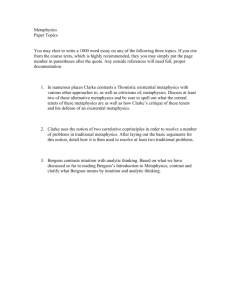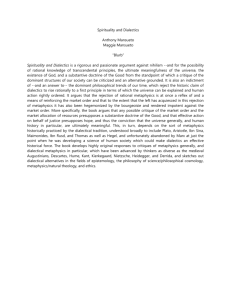Metaphysics Exam -
advertisement
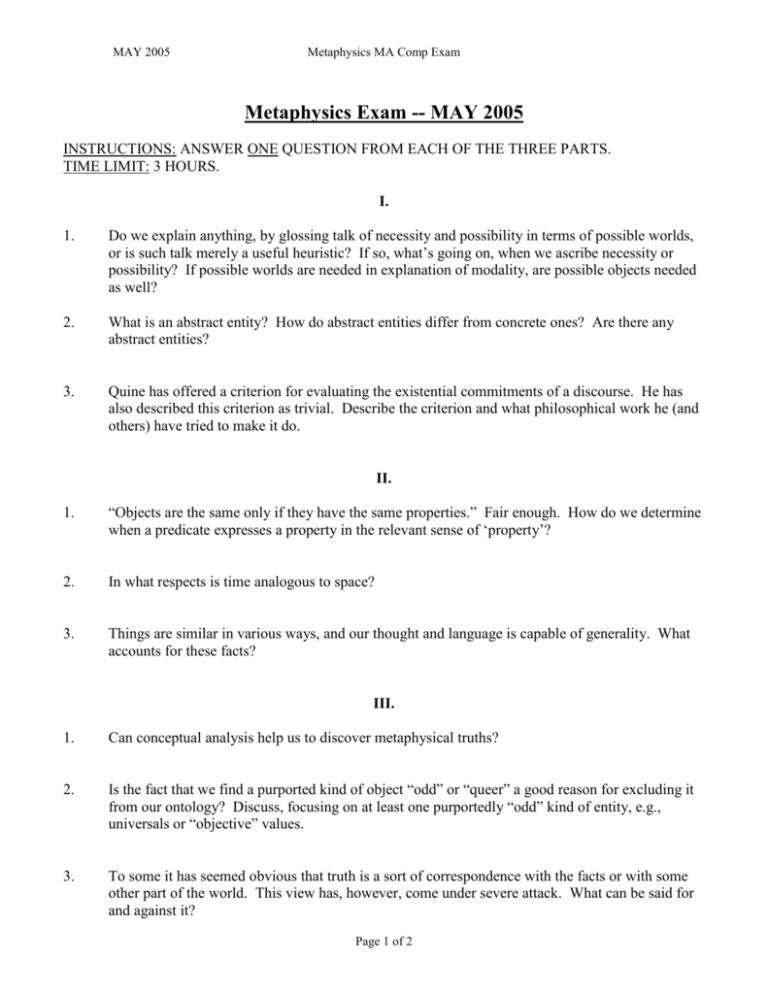
MAY 2005 Metaphysics MA Comp Exam Metaphysics Exam -- MAY 2005 INSTRUCTIONS: ANSWER ONE QUESTION FROM EACH OF THE THREE PARTS. TIME LIMIT: 3 HOURS. I. 1. Do we explain anything, by glossing talk of necessity and possibility in terms of possible worlds, or is such talk merely a useful heuristic? If so, what’s going on, when we ascribe necessity or possibility? If possible worlds are needed in explanation of modality, are possible objects needed as well? 2. What is an abstract entity? How do abstract entities differ from concrete ones? Are there any abstract entities? 3. Quine has offered a criterion for evaluating the existential commitments of a discourse. He has also described this criterion as trivial. Describe the criterion and what philosophical work he (and others) have tried to make it do. II. 1. “Objects are the same only if they have the same properties.” Fair enough. How do we determine when a predicate expresses a property in the relevant sense of ‘property’? 2. In what respects is time analogous to space? 3. Things are similar in various ways, and our thought and language is capable of generality. What accounts for these facts? III. 1. Can conceptual analysis help us to discover metaphysical truths? 2. Is the fact that we find a purported kind of object “odd” or “queer” a good reason for excluding it from our ontology? Discuss, focusing on at least one purportedly “odd” kind of entity, e.g., universals or “objective” values. 3. To some it has seemed obvious that truth is a sort of correspondence with the facts or with some other part of the world. This view has, however, come under severe attack. What can be said for and against it? Page 1 of 2 MAY 2005 Metaphysics MA Comp Exam Page 2 of 2
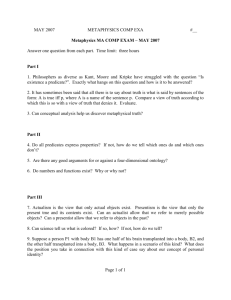


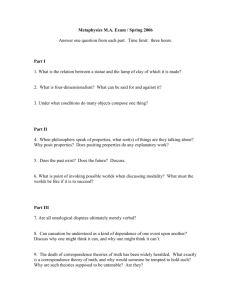

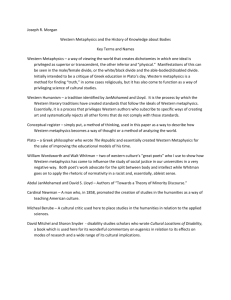
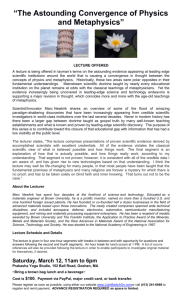
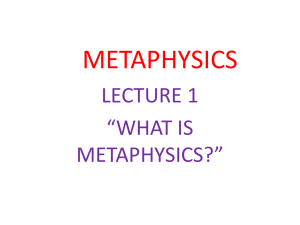
![METAPHYSICS [PH20F]](http://s3.studylib.net/store/data/007798869_2-162d842c24300a3771092030307ccdcb-300x300.png)

